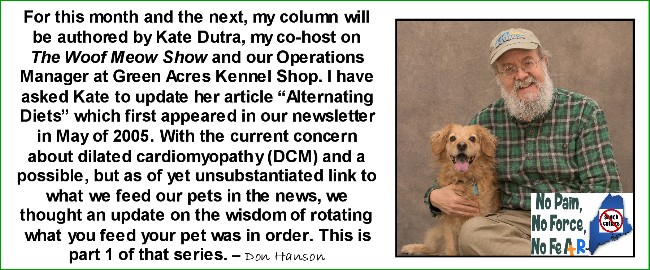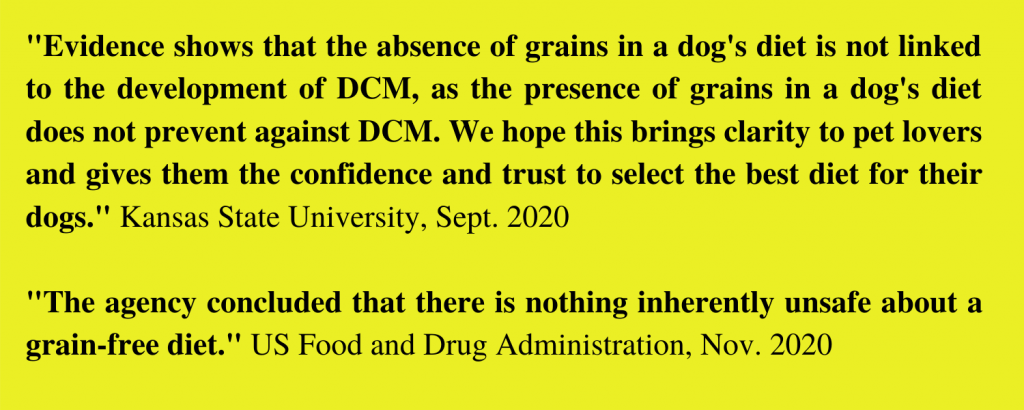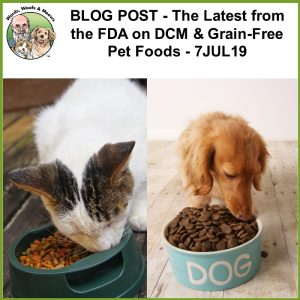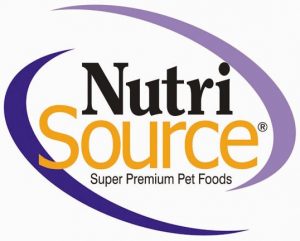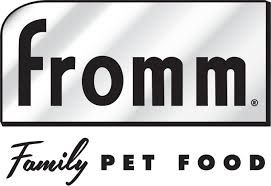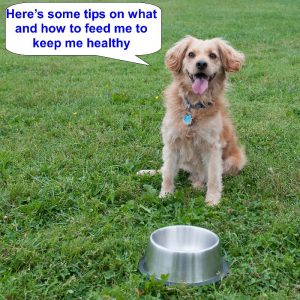< A version of this article was published in the September 2019 issue of Downeast Dog News>
< A short link to this post http://bit.ly/DietRotation2 >
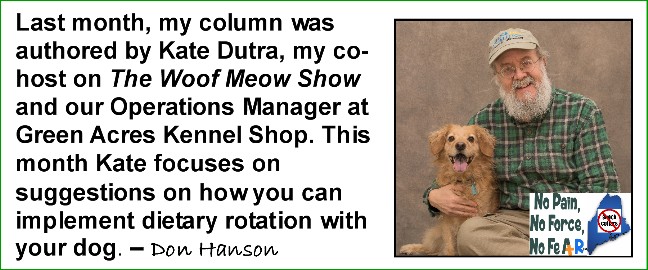 Introducing Your Dog to Dietary Rotation
Introducing Your Dog to Dietary Rotation
Last month [ FMI – http://bit.ly/DietRotation1-30JUL19 ] we explored why dietary rotation should be a regular part of your pet’s life. Understandably, you may be  hesitant to make this change based on past experiences where you changed your dog’s diet. I have been there personally, and the initial consequence of diet change for one of my dogs was ten days of bloody diarrhea and a miserable pup. Often, it only takes one bad experience to convince ourselves that we should never try again. My argument stands, however, that we should not succumb to this fear, but instead we need to work on slowly and methodically strengthening your dog’s gut so that they can handle dietary change with ease.
hesitant to make this change based on past experiences where you changed your dog’s diet. I have been there personally, and the initial consequence of diet change for one of my dogs was ten days of bloody diarrhea and a miserable pup. Often, it only takes one bad experience to convince ourselves that we should never try again. My argument stands, however, that we should not succumb to this fear, but instead we need to work on slowly and methodically strengthening your dog’s gut so that they can handle dietary change with ease.
The first step in introducing dietary rotation is to consider your dog as a unique individual. Things to reflect upon are your dog’s age, health issues, and how long they have been consuming a specific diet. When dogs are young, it is usually easy to train their systems to handle a variety of diets by simply introducing an assortment of foods. Puppies typically are fed three to four times a day, and there is no reason that each of those meals cannot be something different. There is no question that it is a little more work and a bit more costly, but feeding a variety will have lifelong benefits.
For the older dogs that have been eating the same diet for months, if not years, it will most likely be necessary to move at a slower pace. A good starting point is to first determine if you want to use a different manufacturer or feed an alternate protein source from the same company. Many of the pet food companies have come to understand that people want variety for their animals. To keep you as a loyal consumer, they have tried to make transitioning your pet within their product line as easy as possible. There will often be common ingredients in their diets, identical vitamin and mineral packs, and similar probiotics and prebiotics. Usually, I recommend you start by changing the protein source to something new. Instead of feeding a chicken-based diet, choose one formulated with beef, salmon, turkey, anything but chicken.
On the other hand, if you are looking to switch manufacturers (remember many manufacturers make several brands), it may be best to match the protein source to keep the ingredients somewhat similar. For example, if an animal has been eating a chicken product from Manufacturer A, look for a chicken-based product from Manufacturer B to start. The sourcing, nutrient availability, and formulation will be different, so this keeps some things constant during that initial shift.
Whether changing proteins or manufacturers, it is recommended to start with ¼ of the new food and ¾ of the current diet and then increase by ¼ every four days. Slowly altering the diet in this manner allows for 16 days to completely switch to the new diet. Once eating 100% of the new diet, the next step is to alternate back and forth between these two diets daily. One day you feed Brand A, the next you feed Brand B. As your dog begins to tolerate this easily, it is time to add another protein source or manufacturer until you have a sufficiently wide variety of choices for your pet. For the dog with a sensitive gut, you may need to start by introducing the new food as a treat, a few kibbles at a time. If your animal has underlying health concerns, these, of course, must be taken into account; however, this does not have to mean that some rotation is not feasible.
The second area of focus regarding dietary rotation is determining what you want to include in your pet’s diet. Are you considering kibble only or are you contemplating adding some canned, dehydrated, or commercial frozen or freeze-dried raw food? If you are adding canned food to your pet’s diet, it is easiest to add a small amount to the kibble as a topper. This can be a great way to increase your animal’s moisture intake and meat consumption. (Do remember, as with kibble, not all canned is created equal.) When introducing raw, it is easiest to start with a freeze-dried food, albeit not the least expensive way, to go. Just sprinkle some freeze-dried food on the dry kibble and you are done. From the perspective of introducing frozen raw, giving two or three nuggets a day as a snack can be a great starting point. With all of these kibble alternatives, the key is to increase gradually and methodically until you can make a complete meal out of them.
The end goal is for you to be able to routinely switch what you feed your pet and not be fixed only feeding them one, specific diet. While this can be an undertaking at the onset, it pays off in with a healthier gut. Remember, always be vigilant and avoid the potential pitfalls of feeding one food and one brand forever.
Recommended Resources
Articles on Don’s Blog
( http://www.words-woofs-meows.com )
The Wisdom of Rotating Your Pets Diet – Part 1 – http://bit.ly/DietRotation1-30JUL19
Pet Nutrition – Why Rotating Diets Makes Sense – http://bit.ly/DietRotation
GAKS Philosophy on Pet Nutrition – http://bit.ly/GAKS_Nut_Phil
Pet Foods We Offer At Green Acres Kennel Shop – http://bit.ly/GAKS_PetFood_Brands
Things I Wish I Had Known… The Importance of What I Feed My Pets – – WWM-MAR2019 – http://bit.ly/Things-Nutrition-1
Pet Nutrition: Some Myths and Facts – Part 1 – My story with Gus – Maine Dog Magazine – Winter 2017 – http://bit.ly/Gus-Nutrition
Pet Nutrition – What Should I Feed My Pet? – http://bit.ly/What-Should-I-Feed-My-Pet
Pet Nutrition – What Do You Feed Your Dog? – WWM-JUN2016 – http://bit.ly/WhatDoYouFeedYourDog
Pet Nutrition – Should I Feed My Pet A Raw Diet? – http://bit.ly/ShouldIFeedMyPetARawDiet
Pet Nutrition – The Science and Dogma of Pet Nutrition with Dr. Richard Patton with link to 1 hour video –http://bit.ly/Video-Dr-Richard-Patton
Shared News Story – An Exposé on Prescription Diets from WJLA ABC7 News – http://bit.ly/Nut-RXDiets-WJLA-24MAY19
FDA Update on Heart Disease in Dogs & What Should You Do? – 7JUL19 – http://bit.ly/FDA-DCM-Food-7JUL19
Shared Articles – More on the FDA, DCM and Pet Food – 10JUL19 – http://bit.ly/FDA-DCM-Food-10JUL19
Podcasts from The Woof Meow Show
( http://www.woofmeowshow.com )
Podcast – DCM, the FDA, and Dog Food-the Science and the Hype with Canine Nutritionist Linda Case – http://bit.ly/Blog-DCM-FDA-8AUG19
Podcast – Pet’s in the News–No. 4 Pet Food, DCM and The FDA – http://bit.ly/WfMw-DCM-FDA-20JUL19
Podcast – Pet Nutrition with Dr. Richard Patton – http://bit.ly/DrPatton-Podcast
Podcast – Pet Fooled – A Look Inside A Questionable Industry with Kohl Harrington – http://bit.ly/WfMw-Pet-Fooled
Podcast – Is Feeding A Grain-Free Food to Our Dogs Dangerous?, with Linda Case, MS – http://bit.ly/Podcast-FDA-Grain-Free-LindaCase-29SEP18
Podcast – Pet Nutrition with Kymythy Schultze Author of Natural Nutrition for Cats: The Path to Purrfect Health – http://bit.ly/KymythySchultzeCatNutrition-Podcast
Podcast – An Eastern Approach to Pet Nutrition with Dr. Michael Munzer from All Creatures Acupuncture – http://bit.ly/WfMw-Munzer-EstrnNut-2018
Podcasts – Interview with Steve Brown about Unlocking the Canine Ancestral Diet – http://bit.ly/WfMw-SteveBrown-2010
Other Resources
Wysong – The Truth About Pets Foods PDF – http://bit.ly/WysongTheTruthAboutPetFoods-pdf
Pet Fooled on Facebook – https://www.facebook.com/petfooled/
Pet Fooled Webpage – https://www.petfooled.com/pet-fooled-part-1.html
________________________________________________________________________
Don Hanson is the co-owner of the Green Acres Kennel Shop ( greenacreskennel.com ) in Bangor, ME where he has been helping people with their pets since 1995. He is a Bach Foundation Registered Animal Practitioner (BFRAP), Certified Dog Behavior Consultant (CDBC), Associate Certified Cat Behavior Consultant (ACCBC) and a Certified Professional Dog Trainer (CPDT-KA). Don is a member of the Pet Professional Guild (PPG) and is committed to PPG’s Guiding Principles and the Pain-Free, Force-Free, and Fear-Free training, management, and care of all pets. Don produces and co-hosts a weekly radio show and podcast, The Woof Meow Show, that airs on Z62 Retro Radio WZON (AM620) and WKIT 103.3-HD3 and is streamed at http://bit.ly/AM620-WZON every Saturday at 9 AM. Podcasts of the show are available at http://woofmeowshow.libsyn.com/, the Apple Podcast app, and at Don’s blog: www.words-woofs-meows.com. The opinions in this post are those of Don Hanson.
©31AUG19, Donald J. Hanson, All Rights Reserved
< Click for Copyright and Use Policy >
